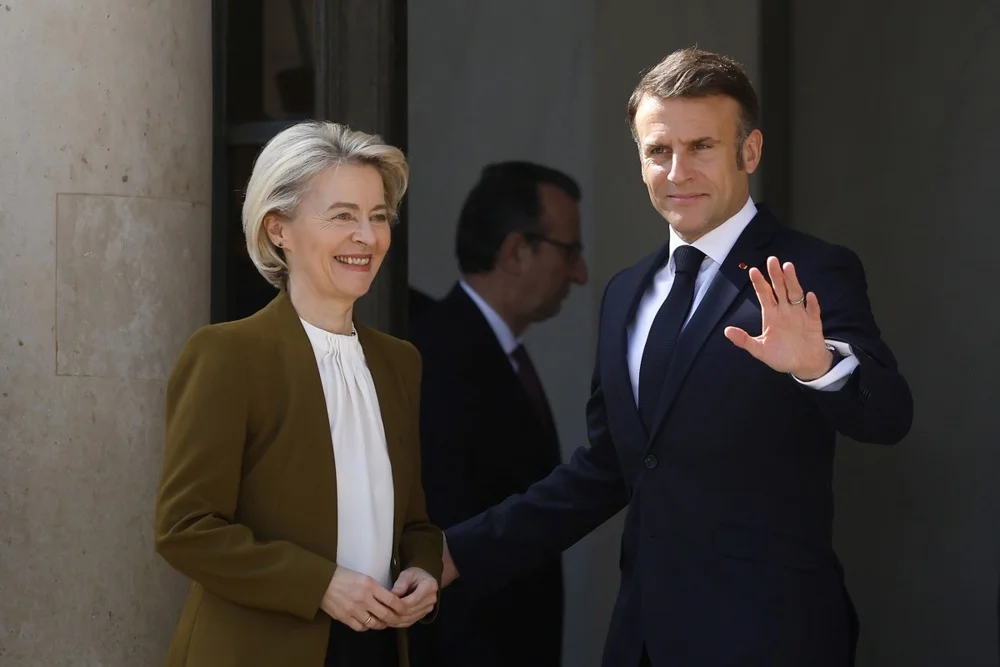French President Emmanuel Macron welcomed European Commission President Ursula von der Leyen in Paris on Friday, October 17, 2025, ahead of a European summit in Brussels next week. The two leaders met at the Élysée Palace, posing briefly for photos before starting their talks.
The meeting follows a turbulent period in France, where Prime Minister Sébastien Lecornu narrowly survived two no-confidence votes on Thursday.
This temporary relief for Macron averts another government collapse but highlights ongoing challenges as France heads toward a critical budget battle.
France’s Fragile Political Landscape
France, the eurozone’s second-largest economy, operates under a minority government in a divided parliament.
No single party holds a majority, making every major law a test of fragile alliances. The upcoming budget vote, due by year’s end, looms as the next hurdle.
On Thursday, the National Assembly, with 577 seats, rejected a no-confidence motion from the left-wing France Unbowed party, which garnered 271 votes,18 short of the 289 needed to topple the government. A separate motion from the far-right National Rally also failed.
Had Lecornu lost, Macron would have faced tough choices: calling new elections, appointing a fifth prime minister in just over a year, or even considering resignation, which he has dismissed.
Von der Leyen’s EU Challenges
Von der Leyen also faced political heat recently, surviving two no-confidence votes last week in the European Parliament.
Critics from a nationalist group claimed her leadership has led to unchecked migration, threatening European identity and security. They also accused her of prioritizing environmental policies over farmers and consumers.
These votes marked the third no-confidence challenge von der Leyen has overcome in a year, a rare occurrence for a commission president.
She began her second five-year term leading the EU’s executive branch, a powerful role, and remains a key figure in European governance.
Broader Implications
The Paris talks come at a pivotal time. France’s unstable politics could impact its influence at the Brussels summit, where key EU decisions are made.
Macron’s ability to stabilize his government while addressing budget concerns will shape France’s role in regional discussions.
For von der Leyen, the meeting offers a chance to align with Macron on EU priorities, despite her own challenges. Both leaders face pressure to balance domestic and international demands in a tense political climate.






